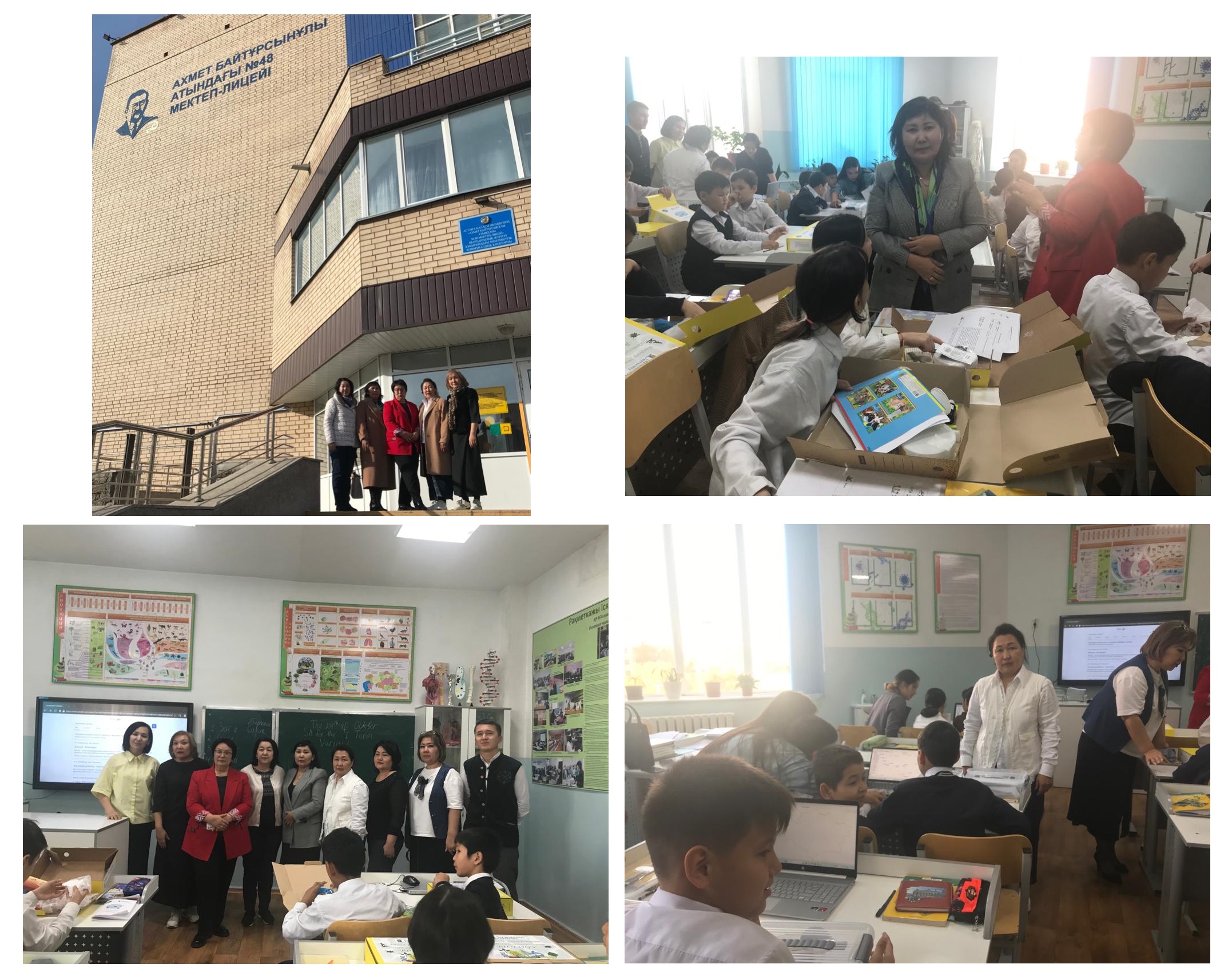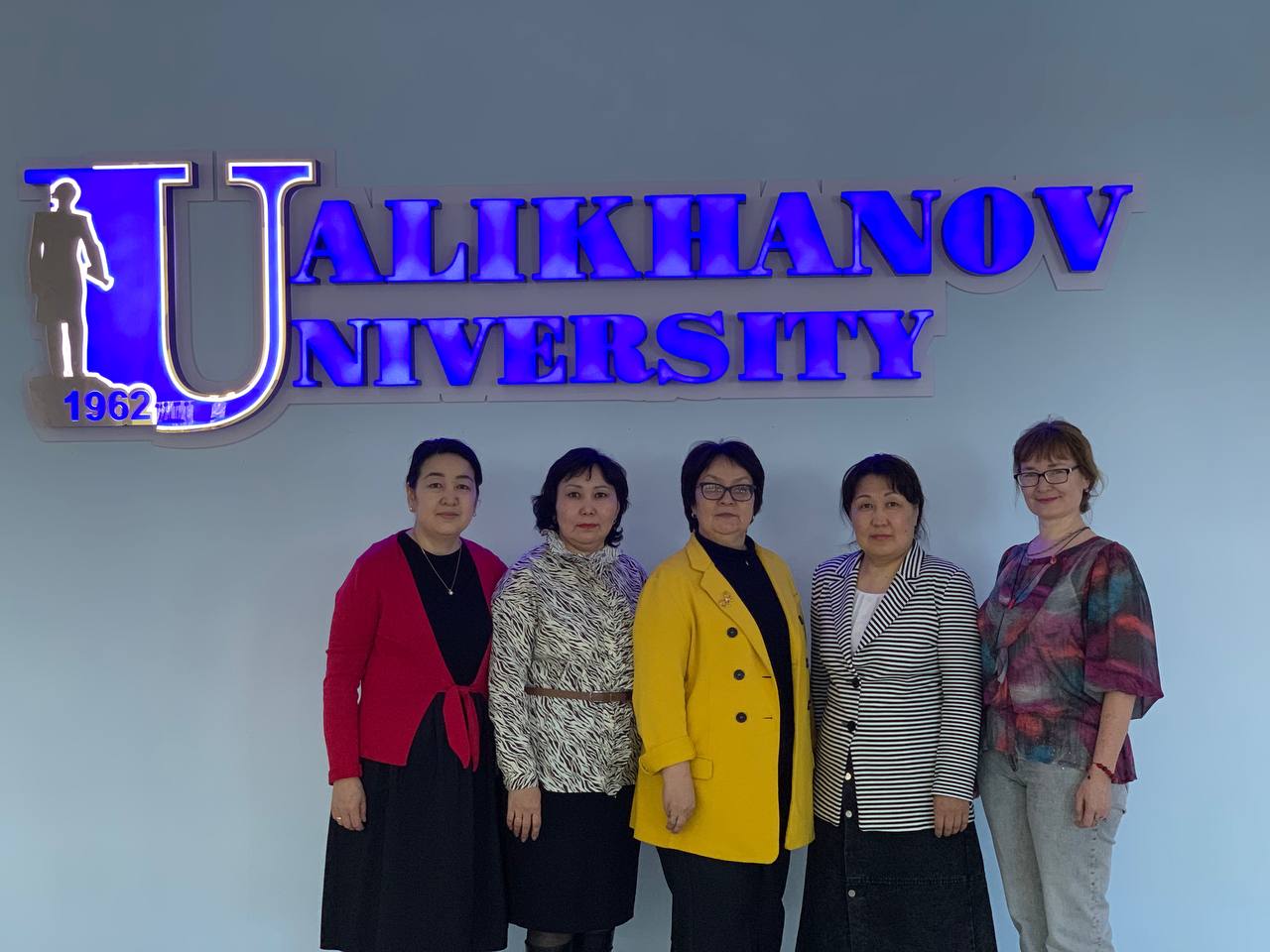
Animated promovideo / Анимационный проморолик /Анимациялық проморолик
Information mail 2022-2023 academic year
Kokshetau University named after Sh. Ualikhanov 2022/2023 academic year continues the implementation of the project "Children's University," aimed at popularizing scientific knowledge by setting design, educational research topics that stimulate interest in science, and issues that may interest children, as well as concern parents, modern science and society. Interdisciplinary STEM activities of the Children's University: ⦁ "GIS design" - contains cases "Development of GIS products" for the implementation of which interdisciplinary knowledge of geography, computer science, mathematics, biology is required. ⦁ "EDU Hitech" - contains cases "Familiarization and production of developing games, designers, including computer games for children" at the intersection of physics of mathematics and computer science; biology, chemistry and computer science. ⦁ "Smart Home" - contains cases "Familiarization and assembly of elementary electronic circuits, including with the Arduino designer, experimental optics, biotechnology." ⦁ "VR/AR" - contains the cases "Development of a virtual instruction/route," "Development of a map/plan/recommendations using augmented reality." ⦁ "Bio-Foodsystems" - contains cases "Familiarization and solution of issues of production, distribution, waste, health, economy of Akmola region." ⦁ "Water" - contains cases "Studying the properties of water and solving environmental and economic issues related to water." Students of grades 4 and 5 are invited to participate. Classes will be held offline in the main building of the university and online on the zoom and KAZCUNET platform, where training video and guidelines will be posted. Contact phone-WhatsApp 8 707 97 111 14 Damekova Saule Kayrollovna
KAZCUNET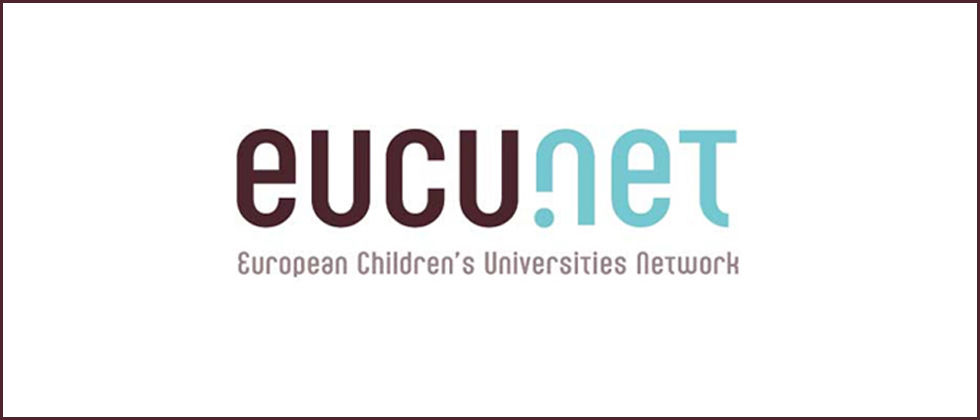
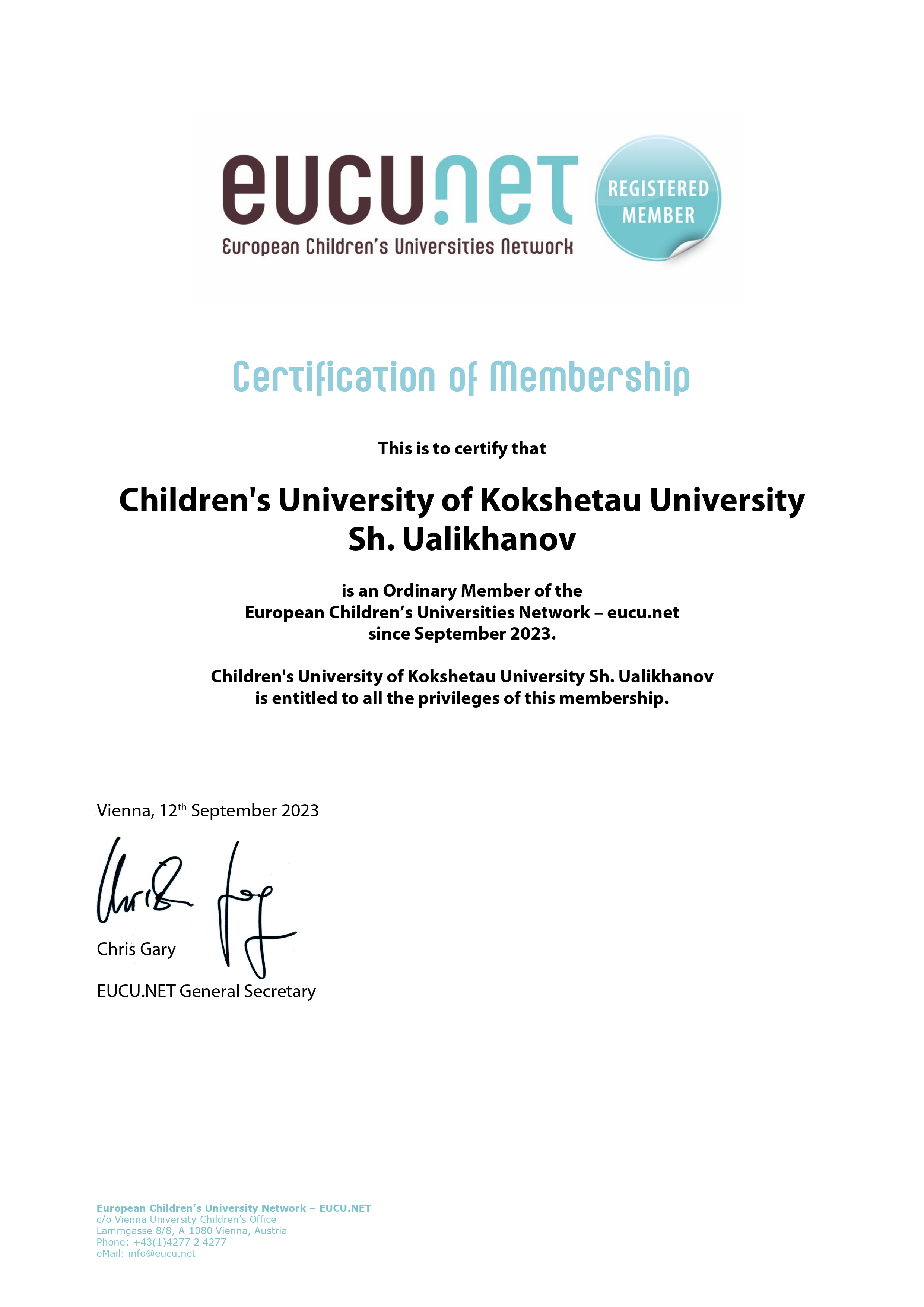
Goal / Цель / Мақсат
The goal of the Children's University (CU) is to provide equal opportunities and involve children in science, early career guidance, acquaintance with the academic culture of the university, socialization of the university using the KAZCUNET platform, cooperation of participants in the innovation ecosystem, creation of a knowledge base for current and future organizers of Children's universities in Kazakhstan, entry into the European network of children's universities.
Tasks / Задачи / Mіндеттер
1. educational. The development of cognitive interest and critical thinking of children on the basis of STEM approach to mathematics, physics, computer science, chemistry, biology, geography, which goes beyond the school course and modern topical issues of science using the author (executors of the scientific project) mini-experimental equipment of game, design methods and the KAZCUNE platform. Development of emotional intelligence and national self-awareness in children. 2. Research. Formation of research skills in primary school students; compilation of a virtual diary of young researchers on the KAZCUNET platform; popularization of science and activities of the university through scientific research of university scientists. 3. Methodical. Development of methodological recommendations for target groups of RC (instructions, guidelines, handmaid). 4. Media and communication: Creation of a video base of popular science lectures for children and a base of scientific authors, involvement of sponsoring partners in the movement of children's universities, creation of an on-line club of graduates of the children's university. Group and individual interactive training methods will be used in conducting classes at the RC. Participants of the university are schoolchildren, university scientists, students, parents, school teachers, university administration, university partners.
Expected Project Results 2021 / Ожидаемые результаты проекта 2021 год / 2021 жылға арналған жобаның күтілетін нәтижелері
Publication of Student Manual, Children's University Lecturer Scholar Manual, Teacher Manual, Parent Manual, University Administration Manual. The developed mini-experimental equipment for children, representing new opportunities for education (materials, guides, ideas for individual discoveries in the field of science) for 24 classes, the lesson of the Children's University is held 1 times a month from September to December in parallel in 6 subjects of chemistry, physics, mathematics, biology, computer science, geography. Publications in scientific journals recommended by KKSON, media of Akmola region, social networks. The KAZCUNET platform operating on the Internet with materials on the four first classes of the Children's University of KU named after Sh. Ualikhanov and a database of popular science lectures.
Expected Project Results 2022 / Ожидаемые результаты проекта 2022 год / 2022 жылға арналған жобаның күтілетін нәтижелер
Publication of the book "Children's University," holding of the First Republican Meeting of Children's Universities, holding of scientific events of webinars, round table, organization of section presentation at the International Conference Shokan okylari -26 The developed mini-experimental equipment for children, representing new opportunities for education (materials, guides, ideas for individual discoveries in the field of science) for 30 classes, the lesson of the Children's University is held 1 times a month from January to May in parallel in 6 subjects of chemistry, physics, mathematics, biology, computer science, geography. Publications in scientific journals recommended by KKSON, media of Akmola region, social networks. KAZCUNET platform with materials on five classes of the Children's University of KU named after Sh. Ualikhanov for 2022 and a database of popular science lectures.
Expected Project Results 2023 / Ожидаемые результаты проекта 2023 год / 2023 жылға арналған жобаның күтілетін нәтижелер
Agreements with Kazakhstani universities on joint research activities under the project "Establishment of KAZCUNET Network of Children's Universities." Acts of work under contracts with universities of Kazakhstan, joint publications in the media, social networks. KAZCUNET Internet platform with information on the activities of Children's Universities of Universities of Kazakhstan. Confirmation of the application for entry and registration of the Children's University of KU Sh. Im. Ualikhanov to the European network of children's universities EUCUNET.
Mini-experimental equipment / Мини-экспериментальное оборудование / Шағын эксперименттік жабдық
Mini-experimental equipment has been developed in a boxed version for the implementation of 180 individual educational and research, design topics for children and access to the Labster 3D laboratory has been organized. 3D virtual laboratory work contributes to the development of cognitive interest due to the dynamic, well-animated plot of laboratory work, and also develops visual-figurative and abstract-logical thinking through additional and virtual reality in a playful form. Children should demonstrate the results of the work performed at the KIDS EXPO 202_ Children's Exhibition within the framework of the Children's University.
Individual work of children / Индивидуальная работа детей / Балалардың жеке жұмысы
During the first semester of the school year, 180 children attend a children's university on a schedule 1 times a month on a Saturday day, master the basics of research and design activities based on the material of one OP module and perform one of the 180 individual educational cases.
Mathematics /Математика
30 non-repeating thematically experimental boxes were developed on the following sections of mathematics, which go beyond the school curriculum of grades 4-5: geometry -17, numerical systems and algorithms 9, logic in mathematician - 2, algebra-2, illustrating the usefulness of mathematics at an early stage of studying these sections. Each experimental box allows children to take the initiative, independence, is calculated for active creative work and includes the following. Printed demonstration and illustrative material that allows you to set an interesting research or project topic (the didactic problem "art to offer a mathematical problem" is solved). Qualitative (having a marketable appearance and developed by students) models and examples of performing individual cases of the task, or several simple tasks leading to a solution. Material resources for independent work (colored paper, glue, markers, magnets, cardboard, etc.) for the manufacture of models depending on the topic. The model can be printed on a 3D printer in the workshop of a children's university. Additional 2-3 questions in PISA format. If the task is research, then a souvenir-mathematical entertainment (created by students) is embedded in the experimental box. Guide to the Children's University, which contains instructions for posting a video report on the completed individual task in the KAZCUNET platform database.
Physics /Физика
30 non-repeating sets have been created for individual work, experience, project in the following sections of physics: electricity and magnetism -8, molecular physics -4, optics-1, electronics-10, general course of physics -5, astronomy -2. Each experimental box includes the same 6 basic elements as in the math kits. The difference and uniqueness in the material resources collected by physics students purposefully for each set of physics. The kits allow you to assemble models: a fountain, a simple telescope, a thermos, a steam turbine, an electronic watering device for plants. Perform experiments and study physical phenomena: absolute black body, pressures, sound waves (Hlandi figures), unconventional sources of electricity (using CD discs, potatoes). Assemble the simplest electronic circuits using Arduino and get acquainted with the technical characteristics of LEDs and other basic electronic elements. Astronomy kits allow you to create an LED picture of the zodiac constellations and a board game on the knowledge of astronomy. Individual physics kits allow you to get basic knowledge and skills to perform more complex tasks in the direction of Smart Home, Eduhitech.
Computer science /Информатика
The uniqueness of 30 individual computer science box sets lies in the focus on the study of geoinformation technologies and the creation of electronic maps. The kits include, developed by the project executors, an Electronic educational Atlas on Geography, which represents a simplified model of the GIS system. Children get their first acquaintance with the electronic educational atlas and get their first skills working with the geoinformation system (GIS). Basic techniques of working with an electronic educational atlas and mastering basic geoinformation concepts by students are formed: projection, shapefiles, types of shapefiles (polygon, point, line), attribute information, database. Students master common ways of creating, editing, copying, transferring and saving spatial information in the form of shapefiles, forming spatial data search skills. Children working with the electronic atlas can create their own digital geographical map in Kazakh, Russian, English; save digital maps and multimedia information as a file, print it on a color printer. Performing individual project tasks in the direction of geoinformatics, using an electronic atlas, children form the lower levels of the international model of geoinformation competence Geospatial Management Competence Model (GMCM). To keep children motivated, a set of mini experimental computer science equipment contains tasks and necessary resources for modeling children's clothing with cartographic drawings.
Chemistry /Химия
Mini-experimental chemistry equipment is a mobile laboratory for children who are passionate about chemistry, allowing them to conduct experiments and experiments. This scientific kit for children covers the main areas of chemistry of the Children's University: water, chemical composition of food, biologically active substances, chemical methods of isolation, qualitative chemical analysis of substances. In total, 30 individual chemistry kits have been developed, which cover the topic of chemistry outside the school curriculum, practice-oriented tasks and are aimed at developing analytical and synthetic mental activity of students aged 8-12. In the direction of Water: the study of the physical and chemical properties of water; water is a universal solvent, the influence of various factors on the quality and properties of water, purification methods. Chemical composition of food: Proteins, Carbohydrates, Fats, Vitamins. Qualitative chemical analysis: the main signs of qualitative reactions; qualitative reactions to neogranic components, qualitative reactions to classes of organic substances. Mini-experimental chemistry equipment is equipped with substances necessary for experiments. In addition, the kit includes laboratory equipment, chemical utensils, as well as a scientific diary with detailed instructions, which must be carefully studied before conducting experiments and filled out after performing an experimental experiment. Classes with the named equipment develop attentiveness and accuracy, form the ability to independently ask, formulate questions and look for answers to them, develop skills of safe experimentation. The student will not only learn how to independently conduct chemical experiments at home, but also gain fundamental knowledge from the field of chemistry.
Biology /Биология
30 individual mini-experimental biology boxes contain various types of plant seeds (peas, squash, corn, cucumbers, wheat, pumpkin) for germination. The kit includes laboratory equipment, chemical utensils for conducting experiments at home independently. A scientific diary with instructions and tasks for studying the features of the anatomical structure of various types of plant tissues, studying the internal structure of vegetative and generative organs of plants, plant life processes: evaporation of water by leaves, the intake of substances from the air, from the soil into the plant cell, their dependence on environmental conditions. The scientific diary introduces children to the purpose of the experiment, to the methodology of the experiment and the method of studying the physiological process in the plant and allows children to record the progress of the study, formulate conclusions.
Geography /География
30 individual projects on the topics: the basics of decryption, drawing up a terrain plan, meteorological tasks. Work with an electronic educational atlas on geography and acquaintance with maps of minerals of Kazakhstan, search for patterns based on two maps, calculation of area, distances. In the proposed material resources of mini experimental equipment by geography: individual color printouts of satellite images of Burabai, maps of Kokshetau and Akmola region, terrain plans of various types, compass and stationery for creating drawings and calculations
Recommendations and guidelines /Рекомендации и методические указания /Ұсыныстар мен нұсқаулар
5 methodological guidelines have been developed for parents, teachers, students, scientists and university administration. Posted on the website of the Children's University KU Sh . Ualikhanov by link
I Republican Meeting of Children's Universities of Kazakhstan /I Республиканский Слет Детских университетов Казахстана /Қазақстанның балалар университеттерінің I Республикалық слеті

June 1 , 2022 on the basis of KU Sh . The First Republican Meeting of Children's Universities of Kazakhstan was held in the village of Alikhanov
Webinar 1 /Вебинар 1
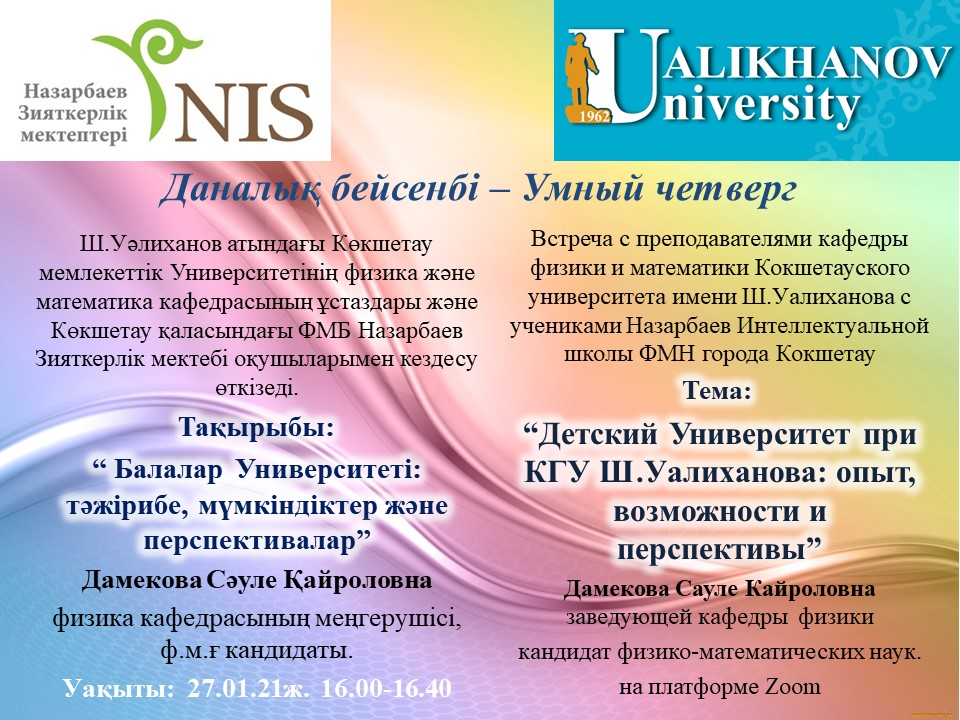
Рекомендации вебинара
Рекомендации вебинара по «Математика, физика, информатика в Детском университете» 27 января 2022г. КУ Ш. Уалиханова
В региональном вебинаре «Математика, физика, информатика в Детском университете», проведенном совместно с НИШ г. Кокшетау, приняли участие 21 ППС кафедры математики, физики, информатики КУ Ш. Уалиханова, учителя НИШ г. Кокшетау, учителя математики школ г. Кокшетау. На семинаре были рассмотрены содержание, средства и методы проведения заданий в Детском университете. В ходе совещания были выработаны следующие положения и рекомендации.
1. Считать, что в КУ Ш. Уалиханова в рамках проекта «Создание сети детских университетов KAZCUNET» проделана большая работа по организации деятельности Детского университета и разработке проектов и исследовательских тем по математике, физике, информатике для детей 4 и 5 классов.
2. Отмечено, что аппробация нового содержания, методов проведения занятий в детском университете, коммуникация детей с учеными позволит, качественно улучшить сотрудничество школа-вуз, а также повысить мотивацию детей к научной деятельности.
3. Способствовать широкому распространению движения Детских университетов в Казахстане, выйти на международный уровень, путем проведения семинаров, Республиканского Слета детских университетов летом 2022 г. На базе КУ Ш. Уалиханова.
4. Продолжить работу Детского университета проведение рабочих встреч и семинаров.
От КУ Ш. Уалиханова Дамекова С.К., Шуюшбаева Н.Н.
От НИШ г. Кокшетау Жангозы Онгарбай,Токсанова А.Ж.
Webinar 2 /Вебинар 2
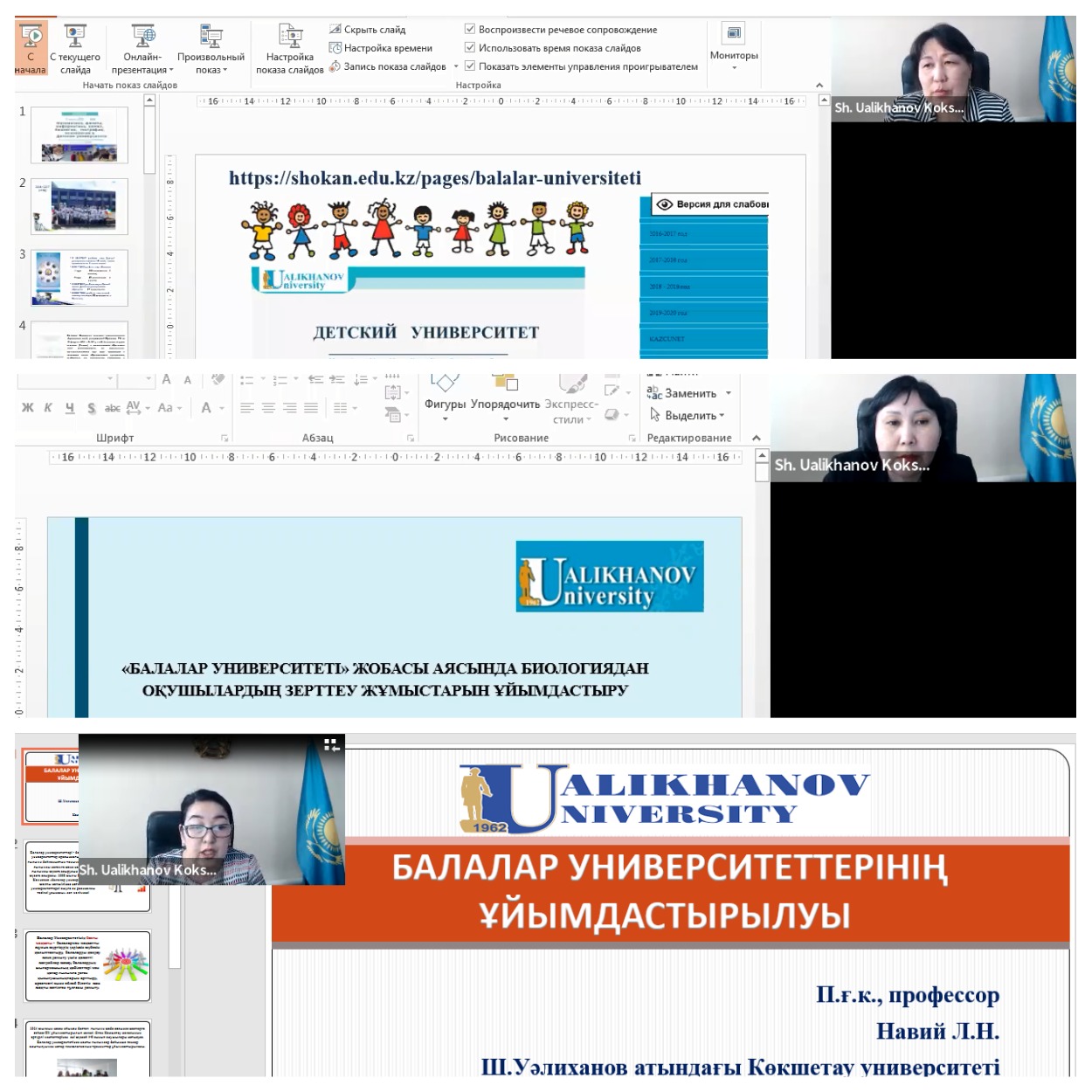
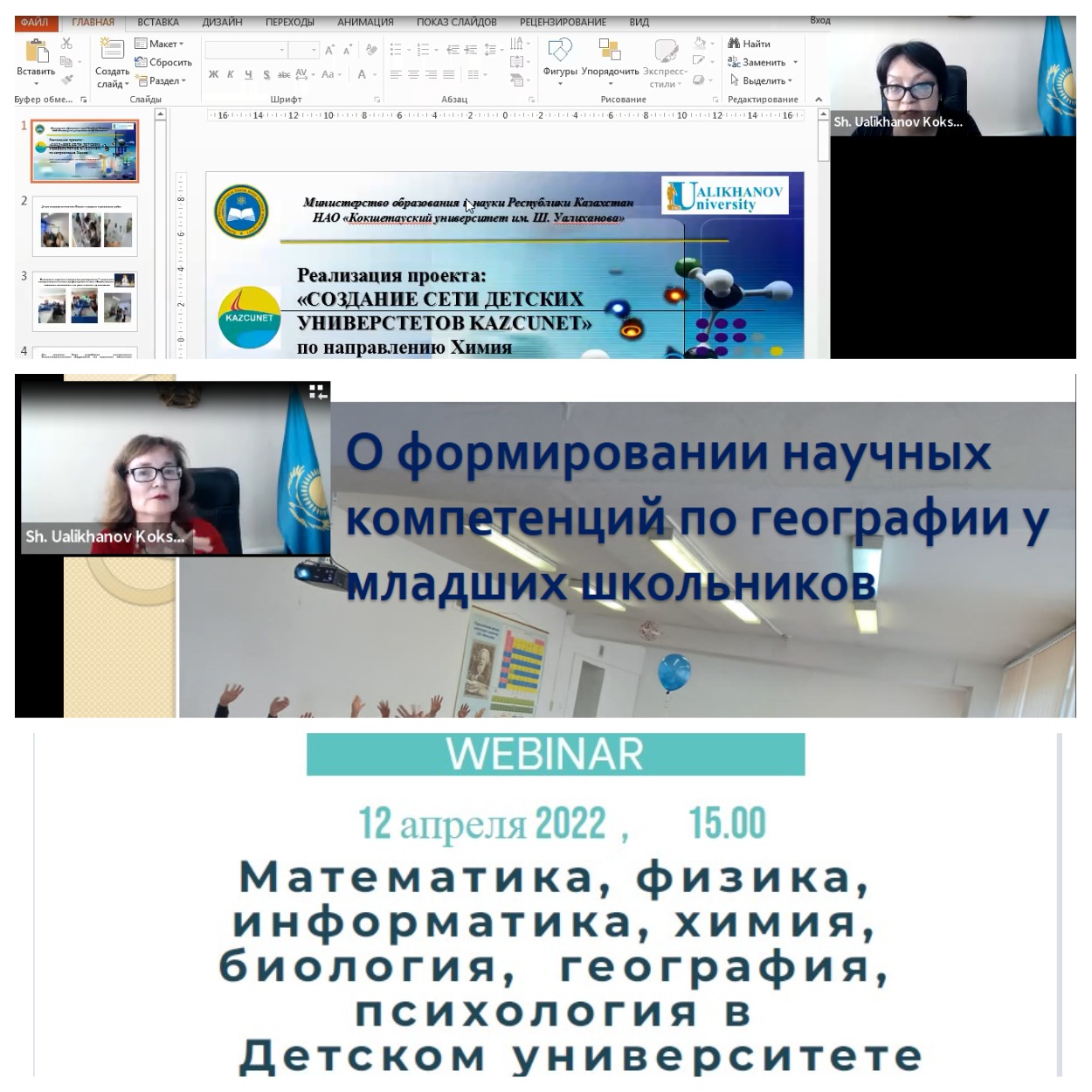
12 апреля 2022 г. на базе Педагогического университета КУ Ш. Уалиханова провели вебинар «Математика, физика, информатика, химия, биология, география в Детском университете» с участием вузов Казахстана. Дистанционно в нем приняли участие ученые, преподаватели Актюбинского регионального университета К. Жубанова, Аркалыкского педагогического института Ы. Алтынсарина, Казахского женского национального педагогического университета, Северо-Казахстанского университета М. Козыбаева, Евразийского национального университета Л.Н. Гумилева, ППС университета и исполнители проекта.
Рекомендации вебинара
1. Внедрение результатов исследования в учебный процесс по дисциплине “Методика преподавания биологии»
2. Привлечение к этой работе сельских школьников
3. Реализация проектов по химии тематика которых направлена на решение прикладных проблем региона
4. Внедрение результатов проектов в образовательный процесс
5. Использовать элементы проектного обучения на уроках географии
6. Приглашать для проведения лекций в ДУ ведущих ученых КУ им.Ш.Уалиханова, имеющих высокий рейтинг в базе скопус, WoS
7. Предложить психологические тренинги и упражнения в Детских университетах других ВУЗ-ов.
8. Обмен опытом и совместная работа с профессорами-участниками Детских университетов других ВУЗ-ов.
9. Результаты проекта внедрить в курсы дисциплин Методика преподавания математики, Методика преподавания физики, Методика преподавания информатики.
Round table "Children's universities of Kazakhstan: experience, problems, prospects" /Круглый стол «Детские университеты Казахстана: опыт проблемы, перспективы» /"Қазақстанның балалар университеттері: тәжірибе мәселелері, болашағы"атты дөңгелек үстел
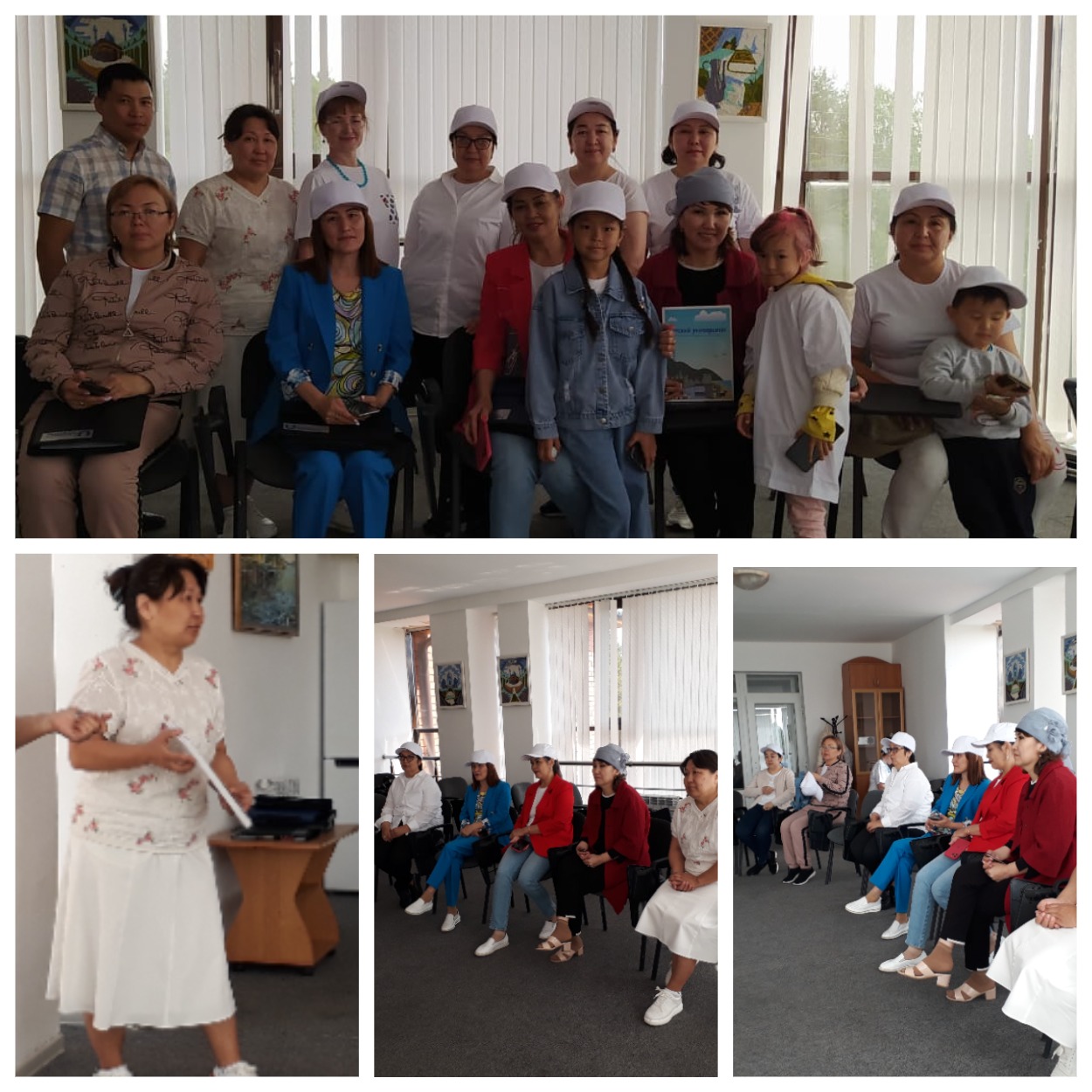

В рамках Слета 1 июня 2022 г. состоялся круглый стол «Детские университеты Казахстана: опыт проблемы, перспективы» с участием ученых и руководителей детских университетов Актюбинского региоального университета, Аркалыкского педагогического института, Таразского регионального университета имени М.Х. Дулати. В рамках круглого стола состоялась презентация книги «Детский университет». Дамекова С.К., Дурмекбаева Ш.Н., Нурмуханбетова Н.Н., Навий Л.Н., Острецова И.Б. Детский университет.-Кокшетау, 2022.-198 с.
Teamwork of children /Командная работа детей /Балалардың топтық жұмысы
During the 2021-2022 academic year, 180 children attend the children's university according to the schedule 1 time a month on a Saturday, master the basics of research and project activities. In the second semester, project teams are created to obtain effective technological solutions for 30 projects of enterprises. They will include 5 or 6 schoolchildren – students of the children's university, students, an expert of an industrial enterprise, a mentor (university teacher).
Биология


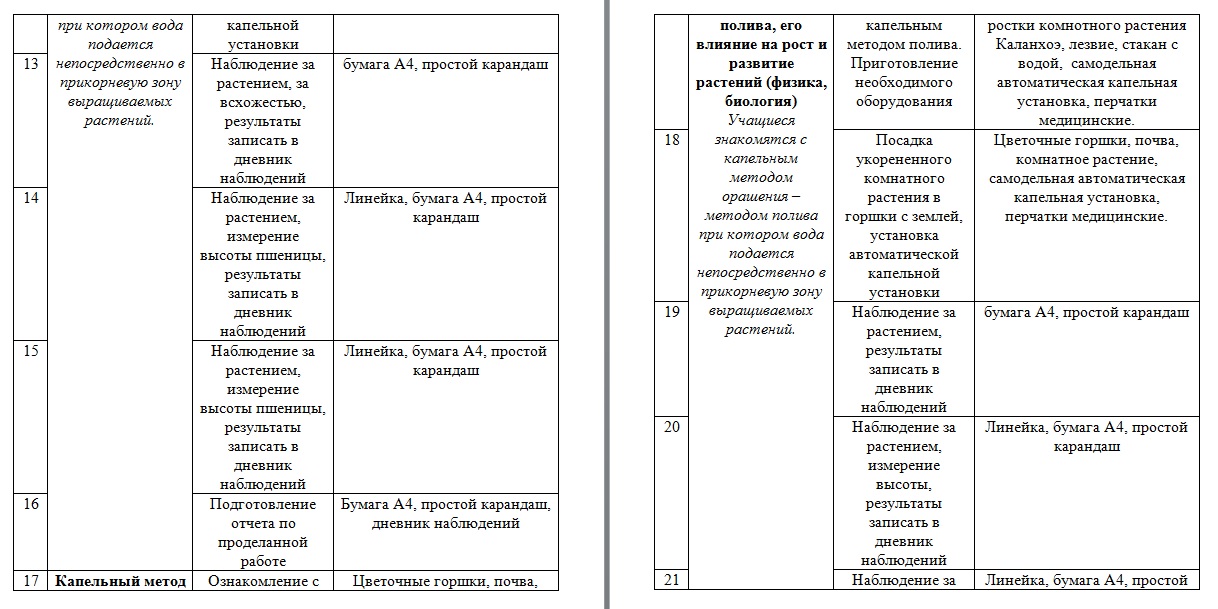

Химия
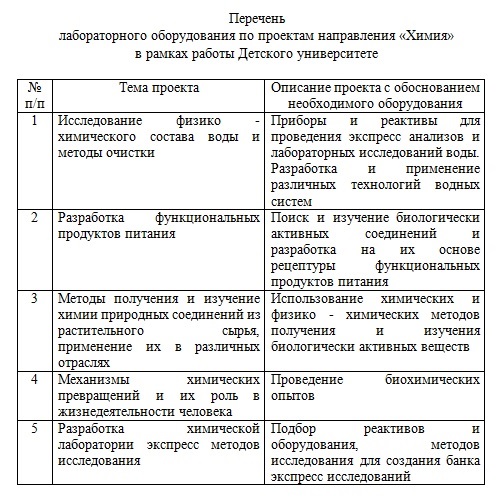
География

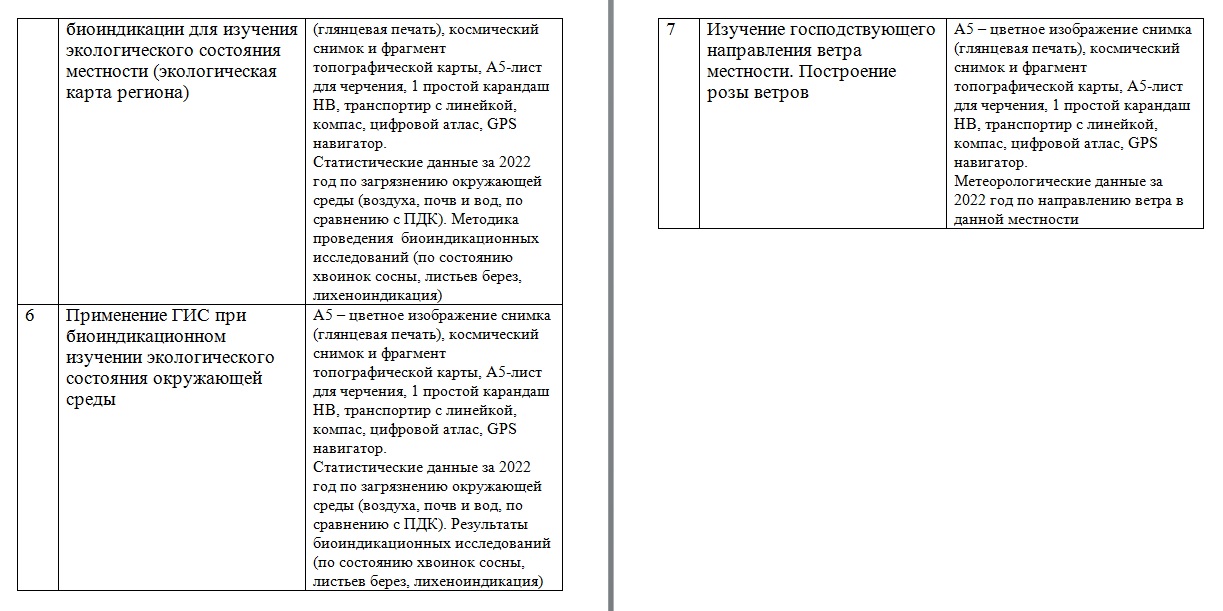
Физика
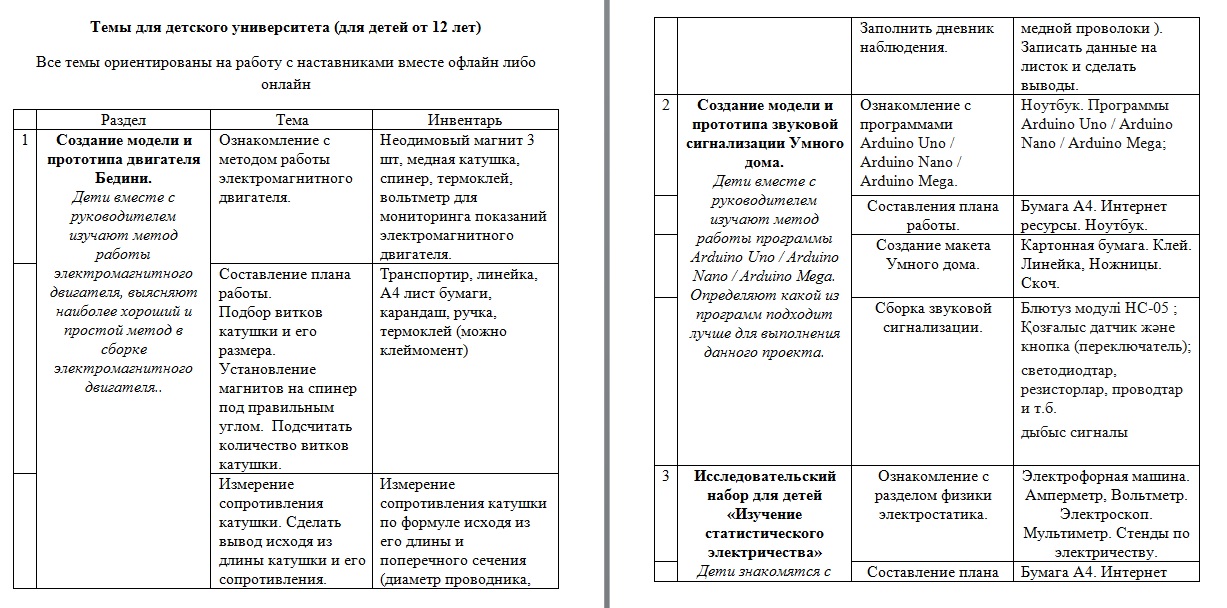
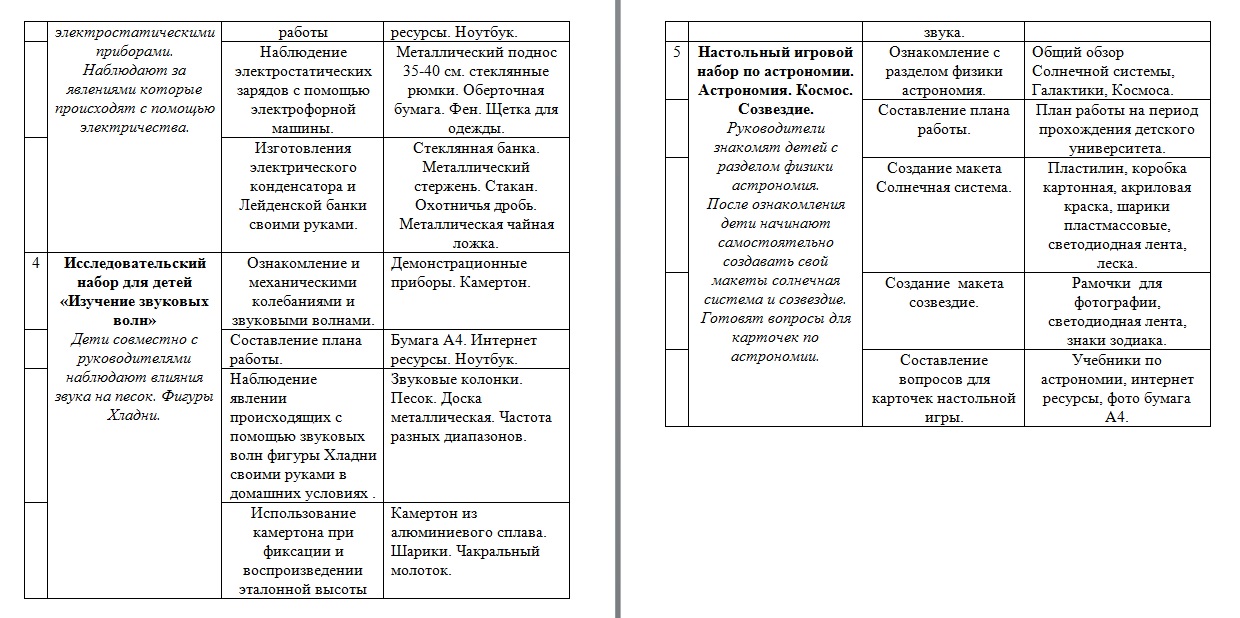
Математика
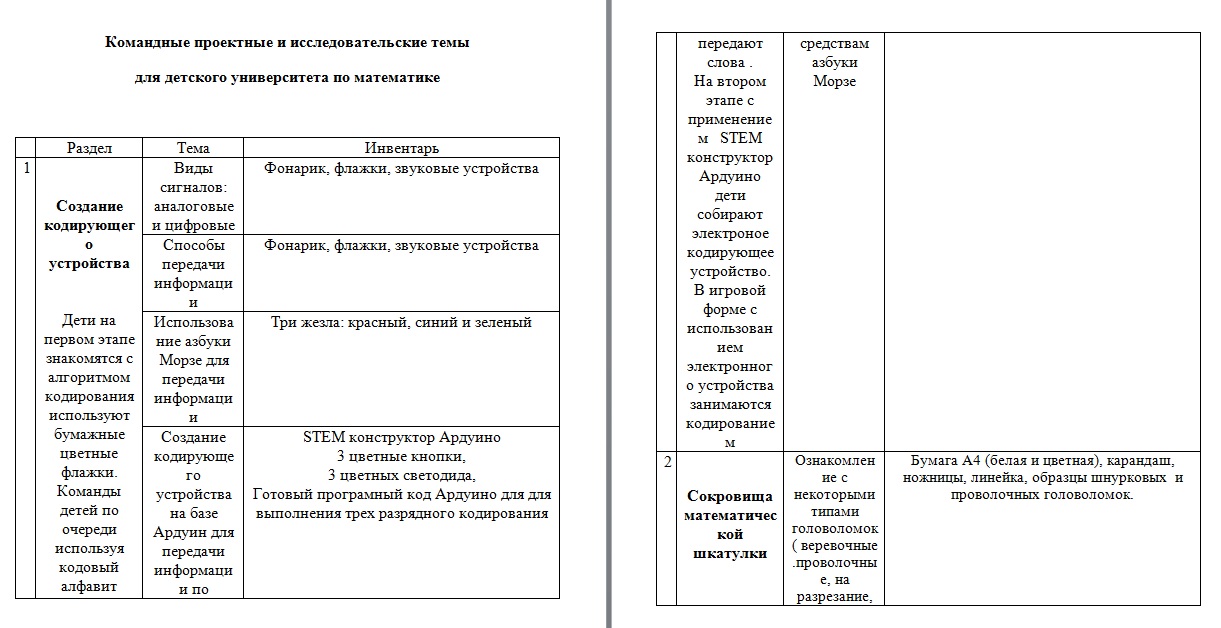
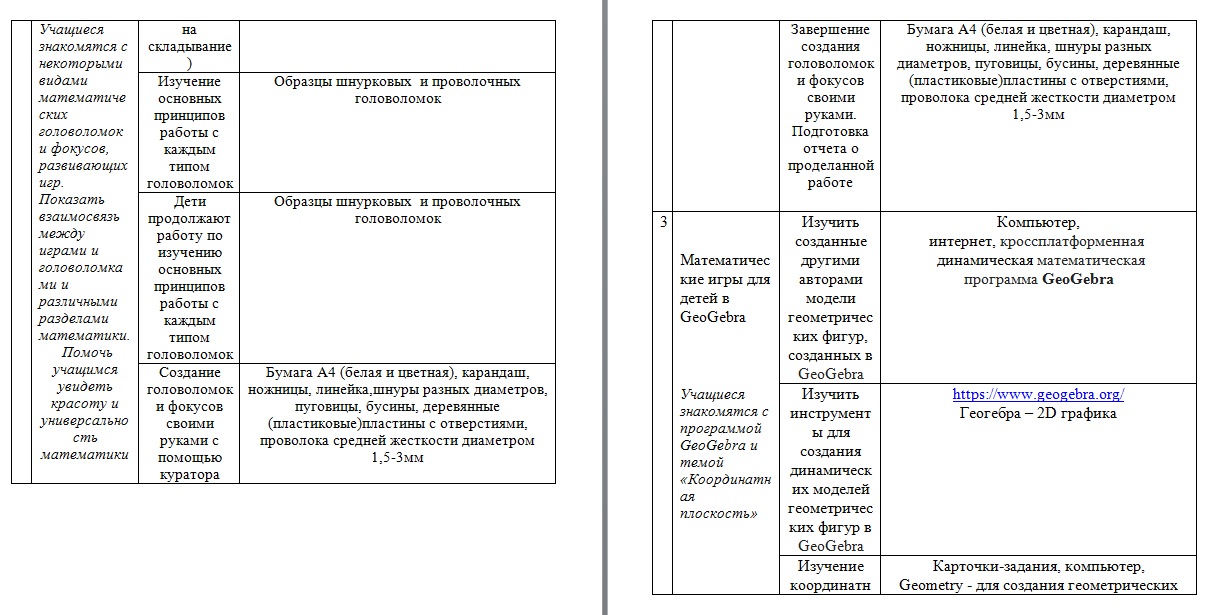
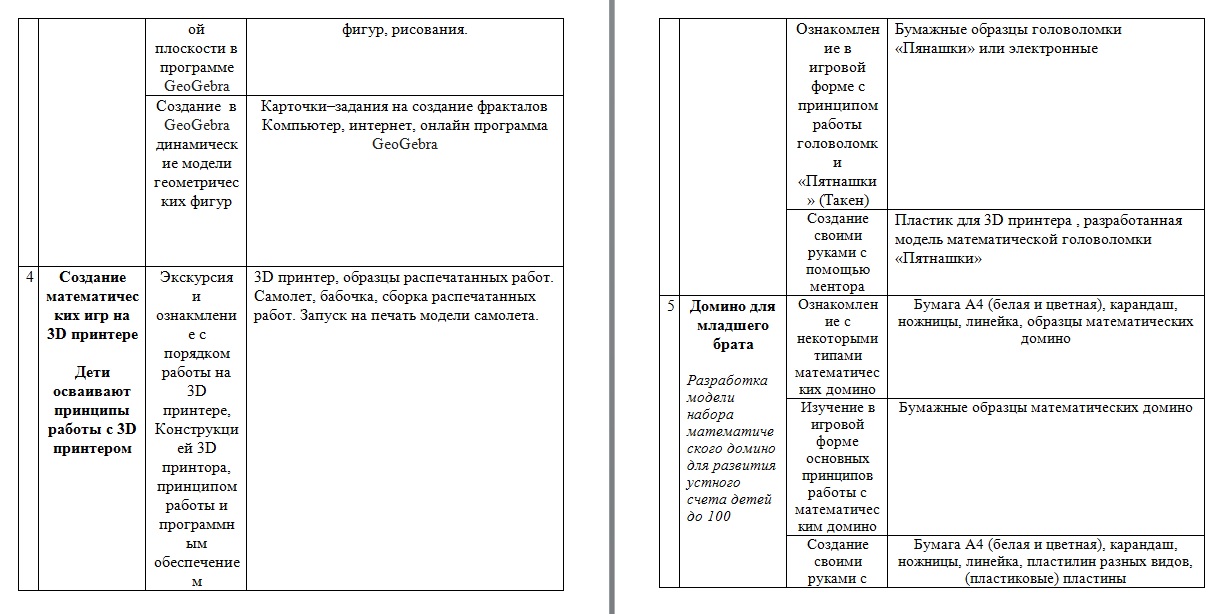
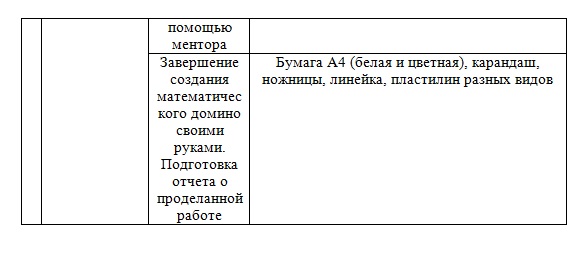
Информатика
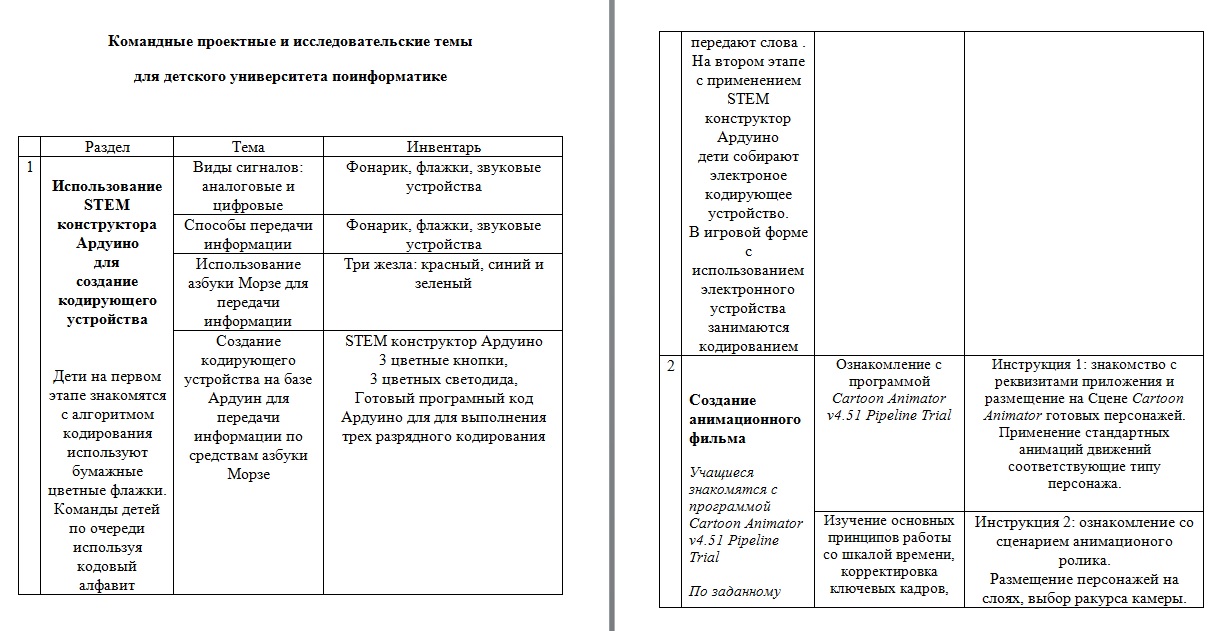
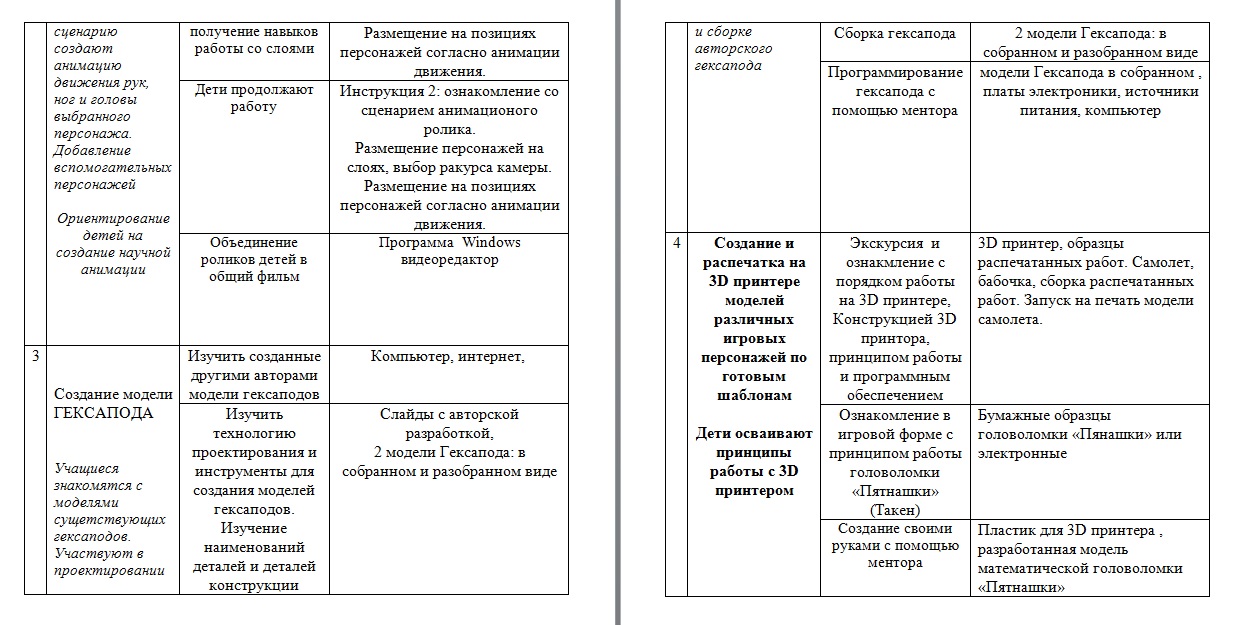
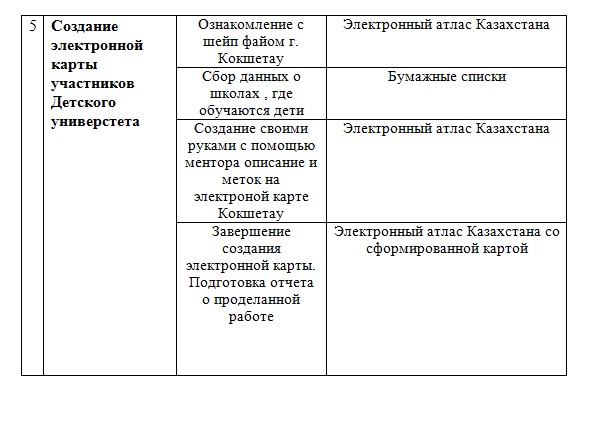
Geography / География / География
Republican competition of young tourists "Encyclopedia of Tourism" 2023 Students of grades 4-5 participated in the competition of young tourists "Encyclopedia of Tourism" "Chkalovskaya secondary school No. 1" of the Tayynshinsky district of the Akmola region, participants of the "Children's University". Participated in the following nominations: "Dream of travel", "Amazing nature", "Tourist at rest". In the nomination: "Dream of travel" - took 1st place. In the nomination: "Tourist on a halt" - took 2nd place. Other participants also received certificates.
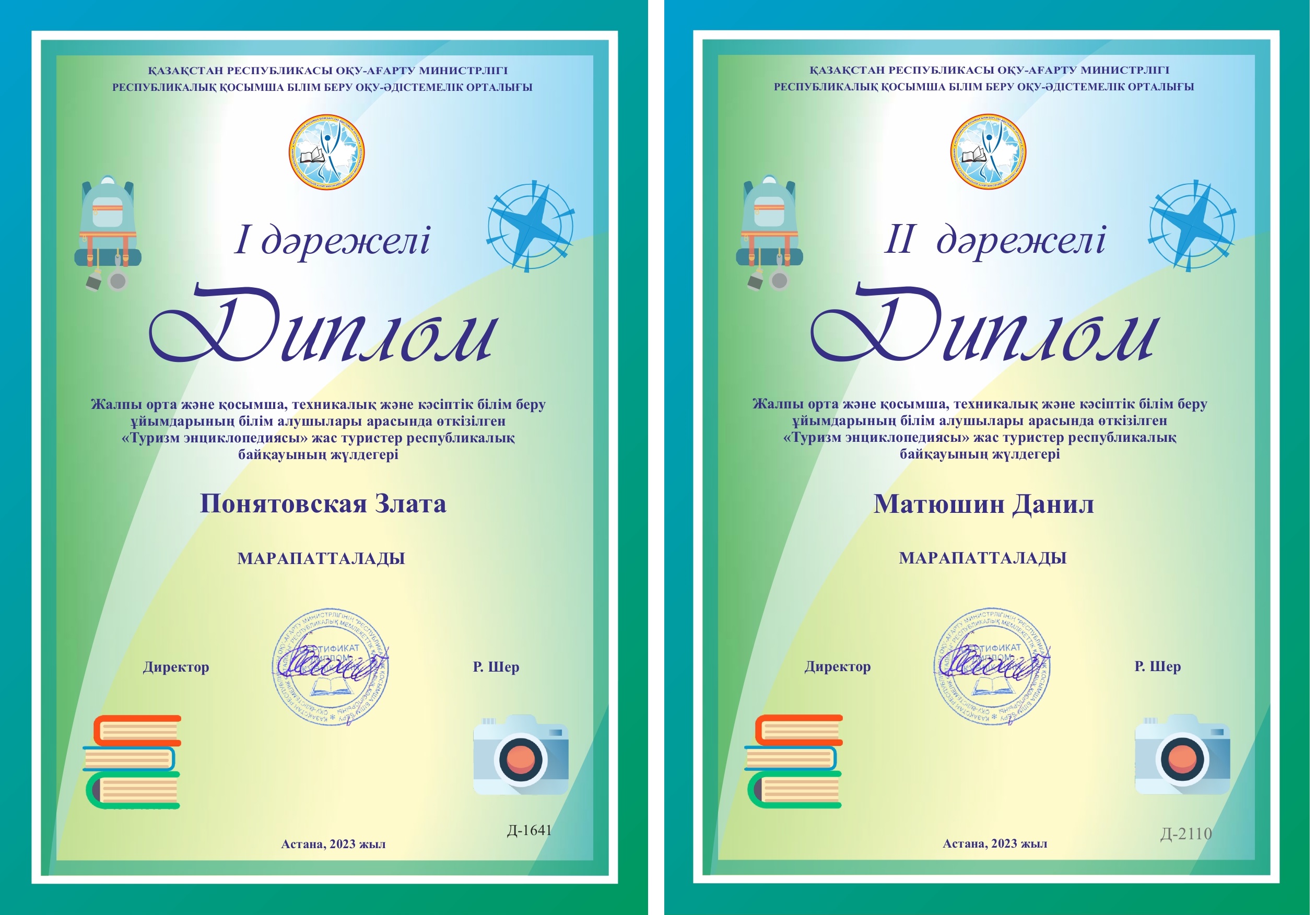
Сomputer science / Информатика / Информатика
On April 29, 2023, an excursion of 30 children participating in the Children's University took place to the Akmola branch of the "Saltustikgeodesia" RSE at the National Center of Geodesy and Spatial Information of the Committee of Geodesy and Cartography of the Ministry of Digital Development, Innovation and Aerospace Industry of the Republic of Kazakhstan.
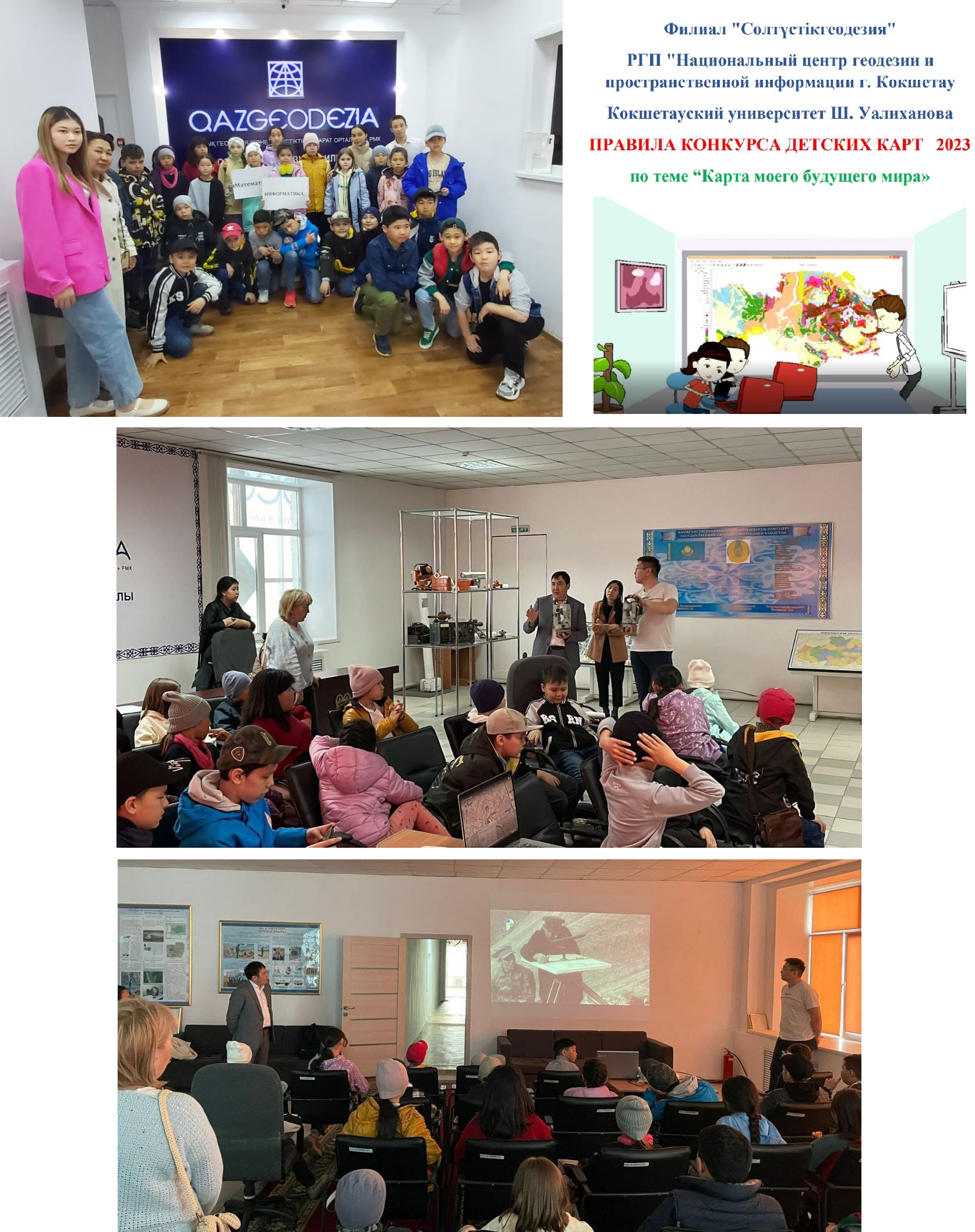
Chemistry and Geography / Химия и География / Химия және География
On February 25, 2023, the excursion of the participants of the Children's University in the direction of chemistry, geography and psychology students to the NOVOPEK enterprise in the city of Kokshetau took place.
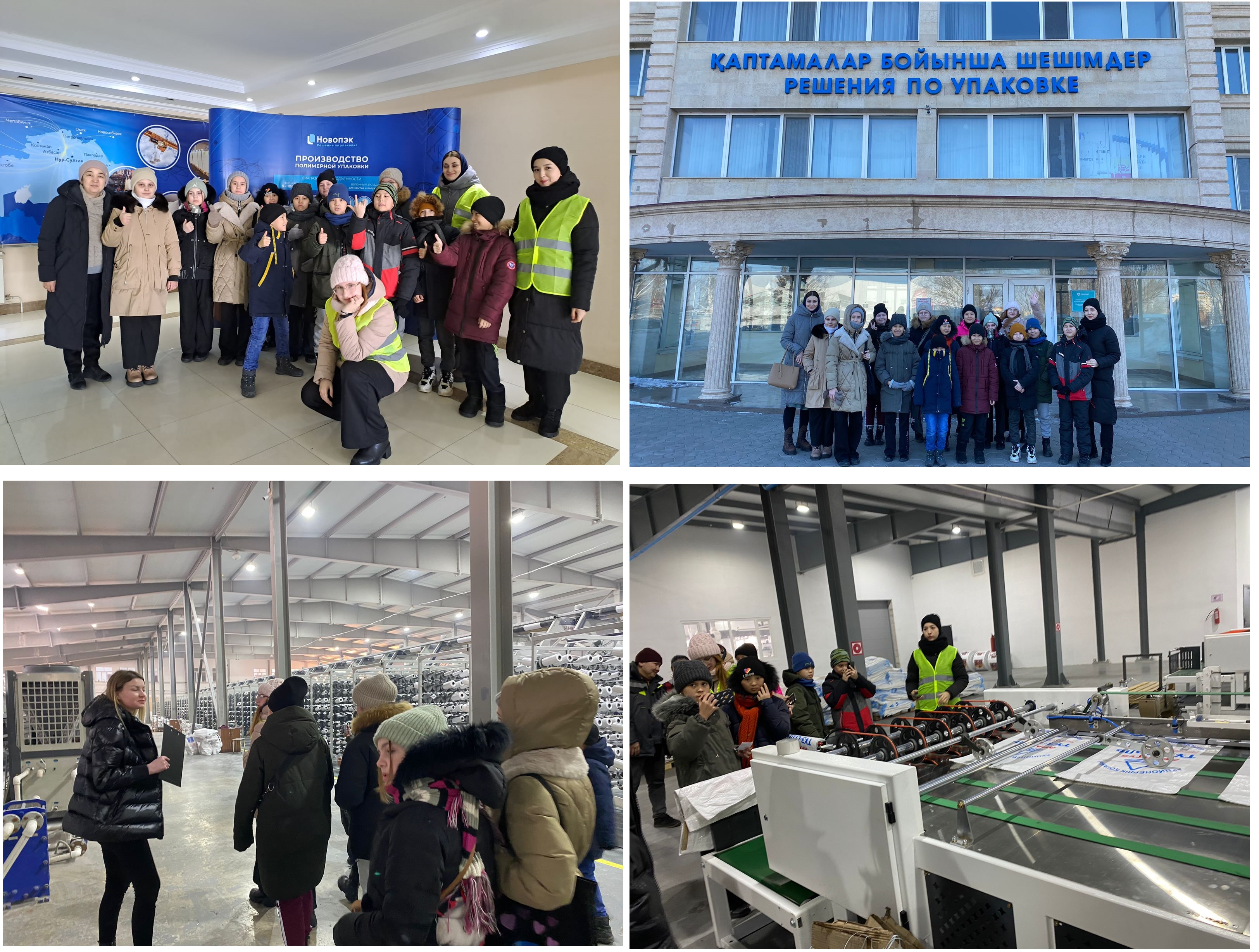
Astana school №48 / Астана школа №48 / Астана №48 мектеп
In September-October 2023, Kokshetau University named after Sh. Ualikhanov, together with professors from the Faculty of Natural Sciences: Ph.D., Associate Professor of the Department of Chemistry Kusepova L.A., Ph.D., Acting. Associate Professor of the Department of General Biology and Genomics, Dukenbaeva A.D., acting Associate Professor Department of Biotechnology and Microbiology Tuyakbaeva A.U., as part of research cooperation within the framework of the project “Creation of a network of children's universities KAZCUNET”, conducted classes at school N48 in Astana
